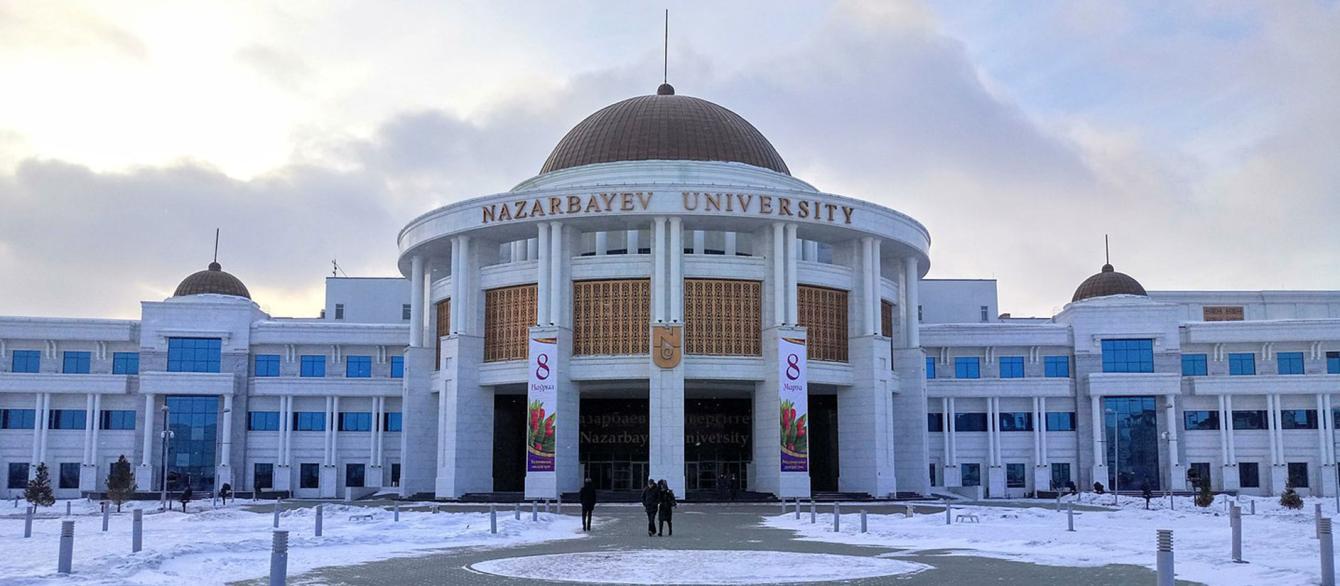International Conference
Empire, Colonies, and Knowledge: Intellectual Exchange in the Russian Empire and the Soviet Union
The late Russian imperial period was marked by rich and complex debates on the possibility of achieving social, political, and cultural unity in the conditions of a multi-confessional and pluralistic polity. Political and intellectual elites in the metropole and the colonies actively engaged in them. These exchanges of knowledge and ideas led, inter alia, to the development of religious reform and nationalistic movements on the peripheries of the empire. Soviet nationalities policy, based on the principle of ethnic classification and the idea of national self-determination, simultaneously exploited the fruits of this interchange and brutally suppressed nationalist activism. Contemporary post-Soviet states reflect in their ethnic composition and internal politics the uneasy legacy of Russian and Soviet engagement with minority elites and movements, while the Russian Federation continually revises the balance between Russification and linguistic-territorial concessions for minorities.
On May 20-22, 2022, the Department of History, Philosophy and Religious Studies at Nazarbayev University in collaboration with the Davis Center for Russian and Eurasian Studies at Harvard University holds an international conference devoted to the mutual interactions between political and intellectual elites of the metropole and the provinces in the former Soviet Union from the period of the empire to the present. The conference will be held on the campus of Nazarbayev University in Nur-Sultan, Kazakhstan, and also can be joined online via Zoom.
Saturday, May 21, 2022
9:00 (GMT+6) – Opening Address
9:15 – 11:00 (GMT+6) Session One: Negotiating Statehood in Early Soviet Kazakhstan
Zauresh Saktaganova (Buketov Karaganda State University), Кирревком: создание, деятельность и взаимоотношения с центром.
Arslan Akanov (Nazarbayev University), Roots of Soviet Gentry
Andrey Bykov (Singapore Academy of Corporate Management), Формирование границ Казахстана: дискуссии и решения первого двадцатилетия советской власти.
Dina Amanzholova (Institute of Russian History, Russian Academy of Sciences), Управление разнообразием: по «революционному чутью», силами «кавалеристов», или «ломовых работников»
11:15 – 13:00 (GMT+6) Session Two: The (Mis)Use of Religion in Colonial Administration
Daniel Scarborough (Nazarbayev University), Sacred Objects and Contested Space in Turkestan
Pavel Shabley (Chelyabinsk State University, Kostanay Branch), Ориентализм и колониальные знания о суфизме в Казахской степи в первой половине 19 века.
Nurlan Kabdylkhak (University of North Carolina),The Idea of Tsarist Patronage of Islam in the Kazakh Steppe.
Svetlana Kovalskaya (L.N. Gumilyov Eurasian National University), Деятельность православных священников среди казахов в начале ХХ века (по материалам дневников)
14:00 – 15:45 (GMT+6) Session Three: Imperial Educational Institutions and Intellectual Exchange
Meiramgul Kussainova (Nazarbayev University), Kazakh Political Elites: Education and Culture under the Russian Empire
Nikolay Tsyrempilov (Nazarbayev University), The First Buryat Academic Scholar: Dorzhi Banzarov in the Russian Imperial and Soviet Public Discourses
Alima Bissenova (Nazarbayev University) & Kulshat Medeuova (L.N. Gumilyov Eurasian National University), Развал- схождение Академии Наук
Tomohiko Uyama (Hokkaido University), Kazakh Intellectuals’ Knowledge of World Cultures, Science and Technology in the Early 20th century
16:00 – 17:45 (GMT+6) Session Four: Boundaries and Belonging
Curtis Murphy (Nazarbayev University), Between Colonial Society and Anti-Colonial Rebellion: Poles and Ukrainians on the Kazakh Frontier in the 19th Century
Ivan Sablin (University of Heidelberg), Difference and Inclusionary Approaches to Russianness in the State Duma, 1906-1907
Alen Askar (Nazarbayev University), Khrushchev’s Utopia: Virgin Lands Campaign in Kazakhstan
Gulmira Sultangalieva (Al-Farabi Kazakh National University), Bakytzhan Karataev about the policy of the Russian Empire in the Kazakh Steppe
18:00 (GMT+6) – Keynote Delivery: Terry Martin, Harvard University
Sunday, May 22, 2022
9:00 – 10:30 (GMT+6) Workshop: Digital Methods in Exploration of Eurasian History.
11:00 – 12:00 (GMT+6)Conversation with Alexandra Vacroux, Harvard University: Eurasia and the West after 1990.
12:15 – 13:45 (GMT+6) Session Five: Empire in Transnational Perspective
Rozaliya Garipova (Nazarbayev University), Knitting the Empire Together: Cultural and Intellectual Exchange Between the Volga-Urals and the Kazakh Steppe.
Norihiro Naganawa (Hokkaido University), Muslim Youth, Russia’s Multinational Society, and the Circulation of Democratic Ideals.
Kelly O’Neill (Harvard University), Geospatial Intelligence, Graphic Strategies, and the Definition of Central Asia in the Late Imperial Period.
Dilyara Usmanova (Kazan Federal University), Tатарские школы, учебники и учебная литература Синьцзяня: опыт национальной мобилизации (1-я пол. ХХ в.)
14:45 – 16:30 (GMT+6) Session Six: The Long Soviet Shadow and Post-Imperial Legacies
Leora Eisenberg (Harvard University), Culture Shock: The Russian Media’s Response to the Kazakh Alphabet Shift.
Caress Schenk (Nazarbayev University), Quantification as Hegemony. Official Data and Hierarchies of Knowledge.
Alexei Trochev, Gavin Slade (Nazarbayev University) & Laura Piacentini (University of Strathclyde), Migration of Ideas about Prison Reforms: Soviet Legacy, International Image and Decarceration in Kazakhstan and Russia.
Igor Krupko (International Centre for the Rapprochement of Cultures), Преодоление культурной травмы через пере-изобретение исторической субъектности кочевой культуры в работах научной и творческой элиты казахов 1960- 1970-х гг.
Closing Ceremony/Final Remarks
Accessibility
The Davis Center for Russian and Eurasian Studies at Harvard University encourages persons with disabilities to participate in its programs and activities. If you anticipate needing any type of accommodation or have questions about the physical access provided, please contact us at 617-495-4037 or daviscenter@fas.harvard.edu in advance of your participation or visit. Requests for Sign Language interpreters and/or CART providers should be made at least two weeks in advance if possible. Please note that the Davis Center will make every effort to secure services but that services are subject to availability.




